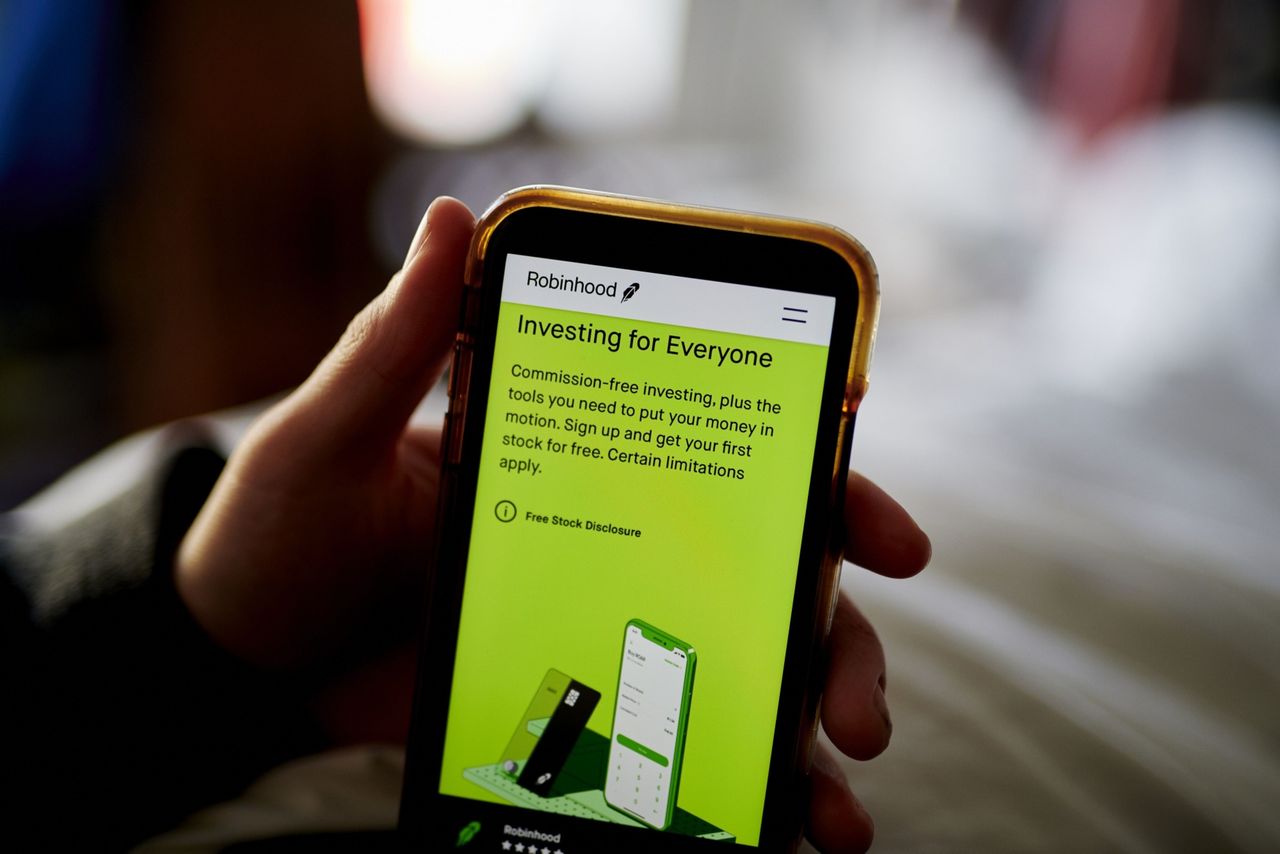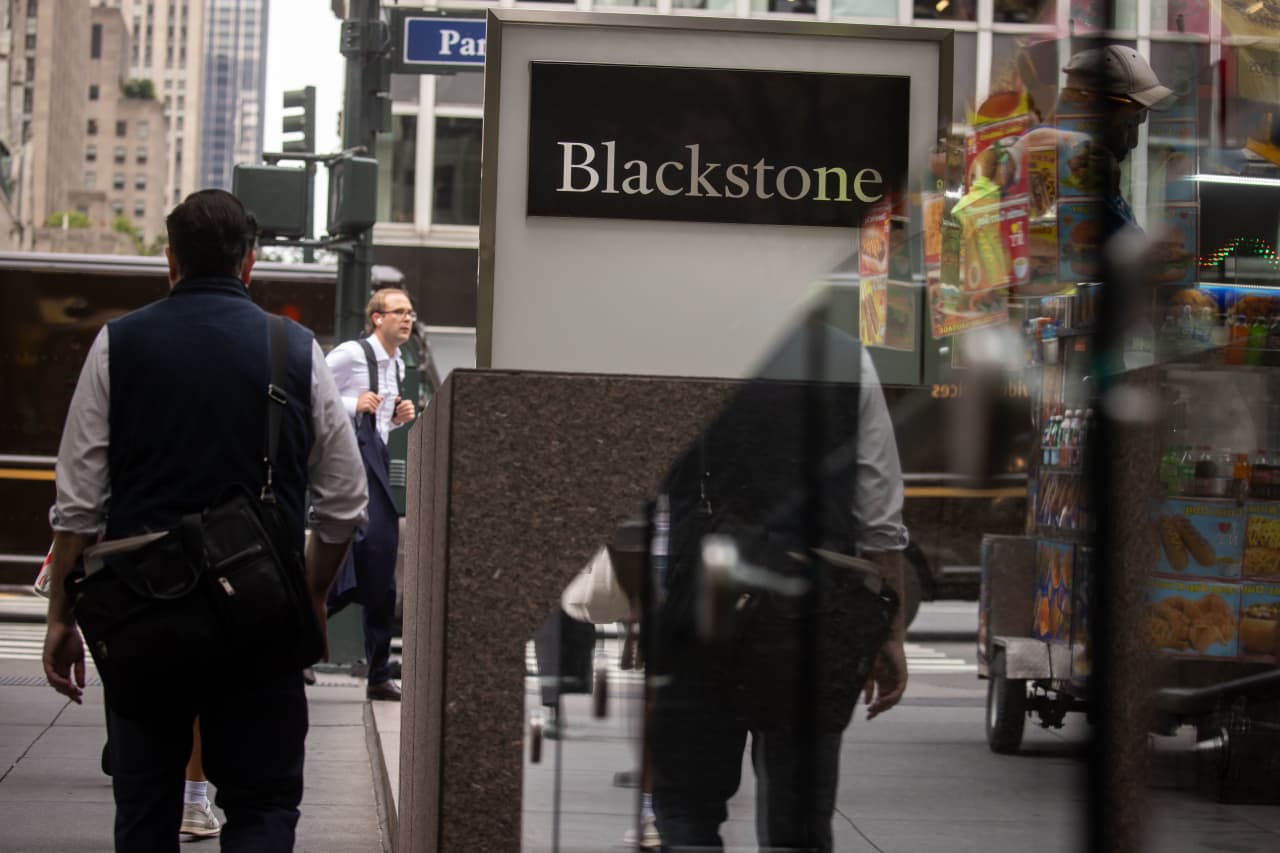Robinhood Blocks Buying in GameStop, AMC, and Other Stocks. Other Brokers Also Add Guardrails.
Investing app Robinhood blocked access to GameStop and other highflying names on Thursday as trading surged among retail users.
The move comes after GameStop (GME) stock has shot higher over the past week, inspiring a short squeeze. The action — driven by retail traders often using options — has spread to other names like BlackBerry (BB), AMC Entertainment Holdings (AMC), and Bed Bath & Beyond (BBBY). Several of those stocks were falling in premarket trading after enormous run-ups in the past few days.
Users began reporting that they couldn’t trade GameStop and other stocks on Thursday. They got a message that “This stock is not supported on Robinhood.”
In a statement on Thursday, Robinhood detailed which stocks now had restrictions. “In light of recent volatility, we are restricting transactions for certain securities to position closing only,” the company said. These include AMC Entertainment, BlackBerry, Bed Bath & Beyond, Express (EXPR), GameStop, Koss (Koss), Naked Brand Group (NAKD), and Nokia (NOK).
“We also raised margin requirements for certain securities,” Robinhood said. The trading platform is raising margin requirements for investors in GameStop and AMC to 100%, Robinhood told Barron’s on Wednesday.
On Thursday morning, Robinhood was also reporting outages.
Other brokers have instituted similar restrictions. Interactive Brokers (IBKR) on Wednesday put AMC, BlackBerry, Express, GameStop, and Koss option trading into liquidation “due to the extraordinary volatility in the markets,” the company said.
“In addition, long stock positions will require 100% margin and short stock positions will require 300% margin until further notice,” the company said. “We do not believe this situation will subside until the exchanges and regulators halt or put certain symbols into liquidation only. We will continue to monitor market conditions and may add or remove symbols as may be warranted.”
TD Ameritrade (AMTD) also placed restrictions on some transactions in GameStop and other securities, the broker said on Wednesday. A spokeswoman didn’t specify exactly what the company was doing but said it could include “actions like increasing margin requirements, or limiting certain types of transactions, like short sales and those that may involve unlimited risk. It is not uncommon for us to make such decisions, which we consider on an individual basis, in the interest of mitigating risk.”
“We have been adjusting our requirements for several days as we continued to see trends indicating unusual volume in an unprecedented market environment, which appear to be divorced from traditional market fundamentals,” the company said. “We have made what we believe to be prudent and appropriate decisions to place some limits on certain transactions for certain securities.”
And fast-growing privately held broker Webull said it was limiting some activities, too.
“Webull has been very successful in limiting our intraday risk during the course of these events by not allowing any short positions in these volatile names since as early as Friday of last week,” CEO Anthony Denier told Barron’s. “Trading has been open for these stocks and uninterrupted amidst this volatility and the only new restrictions we have placed is not allowing market orders opening of new multi-leg option strategy positions.”
Robinhood has grown faster than the rest of the industry over the past year, attracting younger investors. Last year, it said it had more than 13 million account-holders, adding 3 million from January until May. The privately held broker was sued last month by a Massachusetts regulator on allegations that it encourages risky investing among its clientele. The company denied those allegations and said it does not recommend stocks.
On Wednesday night, Robinhood sent a notice to users directing them to educational products in light of the recent volatility.
One trader who has made money in the GameStop trade through his Webull account was frustrated by the new limits.
“It’s one thing if I had a pattern of misconduct, or a lot of violations. It’s another thing for you to tell me that you can’t trade this stock because we don’t like what’s happening to it,” Brandon Luczek, a 28-year-old who lives in Virginia, told Barron’s on Wednesday night. “That’s not for you to decide. I have my own personal risk tolerance.”
Others on reddit’s wallstreetbets forum lashed out at Robinhood. “How in the hell is this legal? They are tanking our legitimately bought and held stocks/options by arbitrarily restricting trading,” one wrote.
 Copyright 2020, Dow Jones & Company, Inc. All Rights Reserved Worldwide. LEARN MORE
Copyright 2020, Dow Jones & Company, Inc. All Rights Reserved Worldwide. LEARN MORE
This stylish family home combines a classic palette and finishes with a flexible floorplan
Just 55 minutes from Sydney, make this your creative getaway located in the majestic Hawkesbury region.
Continued stagflation and cost of living pressures are causing couples to think twice about starting a family, new data has revealed, with long term impacts expected
Australia is in the midst of a ‘baby recession’ with preliminary estimates showing the number of births in 2023 fell by more than four percent to the lowest level since 2006, according to KPMG. The consultancy firm says this reflects the impact of cost-of-living pressures on the feasibility of younger Australians starting a family.
KPMG estimates that 289,100 babies were born in 2023. This compares to 300,684 babies in 2022 and 309,996 in 2021, according to the Australian Bureau of Statistics (ABS). KPMG urban economist Terry Rawnsley said weak economic growth often leads to a reduced number of births. In 2023, ABS data shows gross domestic product (GDP) fell to 1.5 percent. Despite the population growing by 2.5 percent in 2023, GDP on a per capita basis went into negative territory, down one percent over the 12 months.
“Birth rates provide insight into long-term population growth as well as the current confidence of Australian families,” said Mr Rawnsley. “We haven’t seen such a sharp drop in births in Australia since the period of economic stagflation in the 1970s, which coincided with the initial widespread adoption of the contraceptive pill.”
Mr Rawnsley said many Australian couples delayed starting a family while the pandemic played out in 2020. The number of births fell from 305,832 in 2019 to 294,369 in 2020. Then in 2021, strong employment and vast amounts of stimulus money, along with high household savings due to lockdowns, gave couples better financial means to have a baby. This led to a rebound in births.
However, the re-opening of the global economy in 2022 led to soaring inflation. By the start of 2023, the Australian consumer price index (CPI) had risen to its highest level since 1990 at 7.8 percent per annum. By that stage, the Reserve Bank had already commenced an aggressive rate-hiking strategy to fight inflation and had raised the cash rate every month between May and December 2022.
Five more rate hikes during 2023 put further pressure on couples with mortgages and put the brakes on family formation. “This combination of the pandemic and rapid economic changes explains the spike and subsequent sharp decline in birth rates we have observed over the past four years,” Mr Rawnsley said.
The impact of high costs of living on couples’ decision to have a baby is highlighted in births data for the capital cities. KPMG estimates there were 60,860 births in Sydney in 2023, down 8.6 percent from 2019. There were 56,270 births in Melbourne, down 7.3 percent. In Perth, there were 25,020 births, down 6 percent, while in Brisbane there were 30,250 births, down 4.3 percent. Canberra was the only capital city where there was no fall in the number of births in 2023 compared to 2019.
“CPI growth in Canberra has been slightly subdued compared to that in other major cities, and the economic outlook has remained strong,” Mr Rawnsley said. “This means families have not been hurting as much as those in other capital cities, and in turn, we’ve seen a stabilisation of births in the ACT.”
This stylish family home combines a classic palette and finishes with a flexible floorplan
Just 55 minutes from Sydney, make this your creative getaway located in the majestic Hawkesbury region.






















